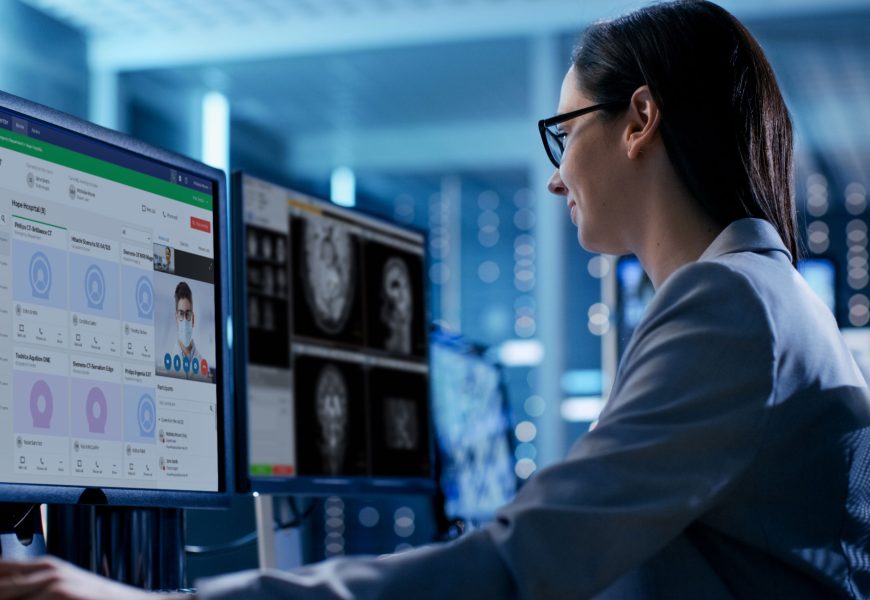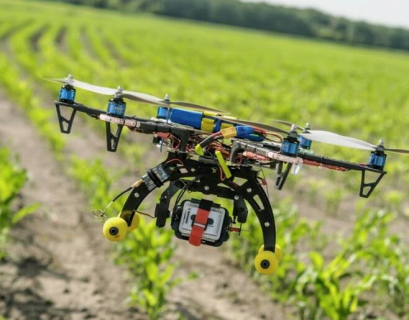Artificial Intelligence (AI) is no longer just a futuristic concept in today’s tech-driven world. It is transforming industries and impacting how we work, live, and think. From healthcare to entertainment, AI is making its presence felt. One area where AI is making significant strides is in machine learning and data analysis.
These fields rely heavily on powerful computing systems capable of processing large volumes of data quickly. Artificial Intelligence PCs are stepping up to meet these demands, offering once unimaginable solutions.
The best part is AI plays a crucial role in data analytics by automating tasks, identifying patterns, predicting outcomes, and enabling data-driven decision-making.
But how exactly do these PCs affect machine learning and data analysis? In this post, we’ll explore the pivotal role of AI-powered systems and their impact on these areas.
Enhancing Data Analysis with AI PCs
When it comes to data analysis, speed and efficiency are crucial. With the sheer volume of data available today, analysing it manually or using outdated tools is simply not feasible. AI PCs are here to solve this problem. Providing the processing power necessary for deep data analysis ensures that insights are drawn quickly, enabling businesses to make data-driven decisions in real-time.
AI PCs can easily handle massive datasets, extracting meaningful patterns that would otherwise be hidden. With the power of AI, these systems can automatically sort and analyse data, detecting correlations and trends that humans might miss. This is especially useful in industries like finance, where analysing vast amounts of transaction data can reveal fraudulent activities or market trends.
AI in data analytics is the application of artificial intelligence (AI) to analyse data analyses. This allows data analysts and scientists to uncover trends and gain insights into the behaviour of consumers or other data sets. Using powerful machine learning algorithms, AI can help process large amounts of information quickly and accurately.
Similarly, AI PCs can analyse user behaviour and retail purchasing patterns to offer personalised recommendations.
Moreover, AI PCs can assist in visualising data. With their advanced graphical capabilities, these systems can present data in ways that are easy to understand, even for those with minimal technical expertise. This helps organisations communicate insights to a broader audience, driving more informed decision-making.
The Role of AI PCs in Accelerating Innovation
AI PCs are more than just powerful tools for machine learning and data analysis; they are innovative catalysts. By providing the computational resources needed to test and refine AI models, these systems empower developers to push the boundaries of what is possible. The more powerful the computing system, the more complex and accurate the AI models become.
Innovation in AI and machine learning often requires experimenting with different algorithms and processing massive datasets to uncover new insights. AI PCs make this experimentation easier and faster. For instance, researchers can test new machine-learning models or refine existing ones without worrying about system limitations. This fosters a culture of rapid innovation, where new ideas can be quickly tested and deployed.
Additionally, AI PCs support cutting-edge technologies like autonomous vehicles, smart cities, and personalised medicine. These technologies require vast data processing and analysis, which would only be possible with AI-powered systems.
Real-World Applications of AI PCs in Various Industries
AI PCs are already having a significant impact across several industries. Let’s look at some key examples:
The applications of AI PCs are virtually limitless. As technology advances, these systems will likely play an even more prominent role in shaping the future of various industries.
Improving Decision-Making with Real-Time Insights
One of the most significant benefits of AI PCs in data analysis is their ability to provide real-time insights. In today’s fast-paced world, decision-makers need information quickly, and PCs are up to the task. With their ability to process and analyse data at incredible speeds, these systems can instantly deliver insights, giving businesses a competitive edge.
In finance, retail, and healthcare industries, real-time data analysis is crucial for staying ahead of the competition. For example, a retail company can use AI PCs to analyse customer purchasing behaviour and adjust its inventory or marketing strategies. Similarly, a hospital can use AI-powered systems to monitor patient conditions in real-time and make decisions based on the latest data.
The faster organisations can access and act on data, the more agile and responsive they become. These PCs are the driving force behind this shift, helping companies make decisions faster and more accurately.
Overcoming Challenges with AI PCs
Despite their many advantages, implementing AI PCs does come with some challenges. One of the main hurdles is the cost of these systems. These PCs require specialised hardware, which can be expensive, especially for small businesses or startups. However, as technology advances and demand increases, the cost of these PCs is expected to decrease, making them more accessible to a wider range of organisations.
Another challenge is the need for skilled professionals who can harness the full potential of AI PCs. At the same time, these powerful systems require machine learning and data science expertise to be used effectively. Fortunately, as AI becomes more widespread, training programs and resources are becoming more available, helping individuals and organisations better utilise these systems.
Despite these challenges, the benefits of AI PCs in machine learning and data analysis far outweigh the drawbacks. With the right investments and expertise, businesses can unlock these systems’ full potential and drive innovation in ways that were once thought impossible.
Conclusion
AI PCs are revolutionising the way we approach machine learning and data analysis. Their power and speed enable more accurate predictions, faster decision-making, and groundbreaking innovations across industries. As technology advances, these PCs will play an even more vital role in shaping the future of data analysis and machine learning, making the impossible possible.
By investing in artificial intelligence PCs, businesses and organisations can gain a competitive edge, unlock new opportunities, and improve efficiency. The power of AI is here to stay, and AI PCs are leading the charge.












